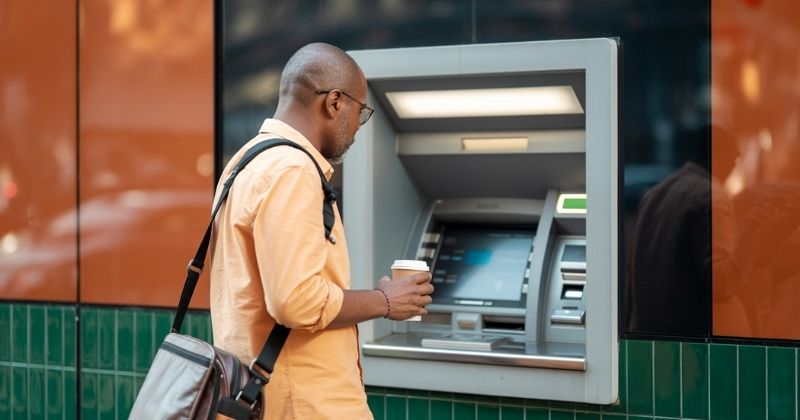
When sending money through a bank in South Africa, one of the most common requirements is a branch code. This short numeric code plays a vital role in ensuring that funds are routed to the correct destination. Whether you are making an electronic funds transfer (EFT), setting up a debit order, or paying a supplier, using the correct branch code helps the bank process your transaction properly.
Key Takeaways
- Branch codes ensure transaction accuracy: They direct payments to the correct bank branch, which is vital for EFTs, debit orders, and other banking activities in South Africa.
- Universal vs. specific codes: Universal codes apply to all branches of a bank and are ideal for general EFTs, while specific codes are tied to individual branches and required for certain transactions.
- Incorrect codes cause delays: Using outdated or wrong branch codes can result in failed or misdirected transactions, making it necessary to confirm the correct code before sending money.
About Arcadia Finance
Easily secure your loan with Arcadia Finance. Pay no application fees and choose from 19 trusted lenders, all registered with South Africa’s National Credit Regulator. Enjoy a simple, transparent process designed to suit your financial goals.
What Is a Branch Code?
Branch codes play a critical role within the South African banking sector, acting as unique numerical references assigned to specific branches of a bank. These codes make it possible to distinguish one branch from another within the same financial institution, which is particularly useful when the bank operates in multiple regions or cities. Their primary function is to ensure that all financial transactions and correspondence are correctly routed to the appropriate branch.
For example, when a bank has several locations across the country, the branch code ensures that payments and instructions are sent to the precise branch linked to the customer’s account. This system forms an essential part of everyday banking infrastructure, helping to maintain accurate, efficient, and reliable operations across a bank’s entire branch network.

Branch Codes in South Africa
Typically in South Africa, this code consists of six digits and is used to specify the exact branch where a bank account is held. For example, a branch code like “123456” would correspond to a specific branch of a bank in a particular location.
The structure of a branch code is straightforward. The first few digits typically represent the bank itself, while the remaining digits identify the specific branch within the bank’s network. This format allows banks to differentiate between branches and ensures that transactions are routed accurately.
This coding system ensures that each branch can be distinctly recognised, facilitating accurate routing of financial transactions.
Role in Identifying Bank Branches
Branch codes play a crucial role in the banking system by:
- Ensuring Accurate Transactions: When transferring funds, especially via Electronic Funds Transfer (EFT), the branch code directs the transaction to the correct branch. This precision reduces errors and ensures that funds reach the intended recipient promptly.
- Facilitating Interbank Operations: In transactions involving different banks, branch codes help in identifying the exact branches involved, streamlining the process and ensuring compliance with banking protocols.
- Supporting Customer Services: For services like setting up debit orders or direct deposits, providing the correct branch code ensures that these services are linked to the right branch, enhancing customer experience.

List of Universal Branch Codes for All Banks in South Africa
Each registered bank in South Africa is assigned a universal branch code that can be used for electronic transactions such as EFT payments. Below is a detailed list of these universal branch codes, which are widely accepted across all platforms for faster and simpler processing.
| Bank | Universal Branch Code |
|---|---|
| Absa Bank | 632005 |
| Capitec Bank | 470010 |
| First National Bank (FNB) | 250655 |
| Investec Bank | 580105 |
| Nedbank | 198765 |
| Standard Bank | 051001 |
| African Bank | 430000 |
| Mercantile Bank | 450905 |
| TymeBank | 678910 |
| Old Mutual | 462005 |
| Bidvest Bank | 679000 |
| Sasfin Bank | 683000 |
| Access Bank | 410506 |
| RMB Private Bank | 254655 |
| South African Post Bank (Post Office) | 460005 |
| Hollard Bank | 585001 |
| Discovery Bank | 679000 |
| Standard Chartered Bank | 730020 |
| Barclays Bank | 590000 |
How to Find Your Bank’s Universal Branch Code in South Africa
If you need to find your bank’s universal branch code, there are a few reliable methods you can use. You can check your most recent bank statement, as many banks include the code alongside your account information. Another option is to contact your bank’s customer service team, either telephonically or by visiting a branch.
The quickest method for most people is to visit the official website of the bank, where a list of universal branch codes is usually published and regularly updated. Most South African banks make this information easily available online to assist with accurate EFT transactions.

Universal Branch Codes vs. Specific Branch Codes
Universal Branch Codes
In South Africa, a universal branch code is a six-digit number assigned by a bank to represent all its branches nationwide. This code simplifies electronic transactions by eliminating the need to identify the specific branch where an account was opened. For instance, if you are transferring funds to a recipient’s account, using the bank’s universal branch code ensures the payment is directed correctly, regardless of the branch location.
Universal branch codes are particularly useful for online banking and electronic funds transfers (EFTs), where the physical branch details are less relevant. They provide a streamlined approach, reducing errors and facilitating faster processing times.
Specific Branch Codes
Specific branch codes are unique identifiers assigned to individual bank branches. Each branch has its own six-digit code, which reflects its specific location and is used to route transactions directly to that branch. This system is beneficial when transactions need to be associated with a particular branch, such as when setting up certain debit orders or dealing with branch-specific services.
The primary difference lies in their scope: universal codes apply to all branches of a bank, whereas specific codes are tied to individual branches. Using a specific branch code ensures that the transaction is processed through the exact branch where the account is held.
When to Use Each Type
Use a universal branch code when conducting general transactions, such as online payments or EFTs, where the specific branch is not a concern. This approach simplifies the process and is widely accepted for most electronic transactions.
Use a specific branch code when the transaction requires identification of the exact branch, such as setting up certain debit orders, dealing with branch-specific services, or when instructed by the recipient. In these cases, using the correct specific branch code ensures accurate routing and processing of the transaction.

Understanding International Banking Codes
For cross-border payments, banks utilise specific codes to identify financial institutions and individual accounts. The most commonly used codes are:
- SWIFT Code: Also known as a Bank Identifier Code (BIC), this code identifies a specific bank during an international transaction. It typically consists of 8 to 11 characters, including the bank code, country code, and location code.
- IBAN (International Bank Account Number): This alphanumeric code uniquely identifies an individual bank account across international borders. It includes the country code, check digits, bank code, and account number.
It’s important to note that while IBANs are widely used in Europe and the Middle East, they are not commonly used in South Africa. South African banks typically rely on SWIFT codes for international transactions.
When sending money internationally from South Africa, you’ll typically need the recipient’s bank’s SWIFT code and their account number. If the recipient’s country uses IBANs, you’ll also need their IBAN. Providing accurate information ensures that funds are transferred efficiently and securely.
Why Branch Codes Matter for EFT Transactions
Ensuring Accurate Fund Transfers
Electronic Funds Transfers (EFTs) are widely used in South Africa to move money between accounts. One of the key requirements for a successful EFT is the correct branch code, which helps identify the bank branch linked to the recipient’s account. Using the correct branch code ensures that funds are sent to the right destination. If the code is incorrect, the payment may be delayed, rejected, or routed incorrectly, which can be difficult to reverse. While universal codes help reduce errors, some banks and account holders still rely on specific branch codes. Verifying the correct code before sending money reduces the risk of failed or misdirected transactions.
Impact on Transaction Processing Times
Accurate branch codes not only ensure proper routing but also affect how quickly payments are processed. An incorrect code may cause the bank to flag the transaction, slowing it down or returning the funds to the sender. This can be frustrating and may require the process to start over. With changes to regional banking rules, such as the discontinuation of EFTs within the Common Monetary Area, banks now pay closer attention to transaction details. Using the correct branch code at the outset helps avoid delays and keeps EFTs moving smoothly.
Common Mistakes to Avoid When Using Branch Codes
Using Outdated or Incorrect Branch Codes
A frequent error in electronic funds transfers (EFTs) is entering an outdated or incorrect branch code. This can lead to delays, rejected payments, or funds being sent to the wrong account. For instance, if a bank has updated its branch codes and you use an old code, the transaction might not process correctly. It’s essential to verify the current branch code before initiating a transfer. Most banks provide up-to-date branch codes on their official websites or customer service platforms.
Confusing Universal and Specific Branch Codes
- Universal codes work for all branches; specific codes are tied to individual branches.
- Using the wrong type can cause transaction failures, especially in online payments.
- Confirm the required code type before initiating a transaction.
Conclusion
Branch codes are a key part of banking in South Africa, especially for electronic payments like EFTs. Whether you are using a universal or specific branch code, providing the correct one ensures that your funds reach the intended account without unnecessary delays. These codes allow banks to route transactions properly, reduce the chance of errors, and help maintain smooth financial operations. By understanding the difference between universal and specific codes and checking your details before making payments, you can manage your banking with greater confidence and accuracy.
Frequently Asked Questions
A branch code is a unique six-digit number used to identify a specific branch of a bank in South Africa. It allows the banking system to direct financial transactions to the correct branch linked to a customer’s account.
A universal branch code is a single code that applies to all branches of a particular bank and is typically used for online and electronic transactions. A specific branch code, on the other hand, is assigned to one particular branch and may be required for services linked to that location.
In most cases, yes. Universal branch codes are accepted for a wide range of electronic transactions, including EFTs and online payments. However, some instructions or account services might still request a specific branch code, depending on the situation.
You can usually find your bank’s universal branch code on your bank statement, in the online banking platform, or by checking the official website of the bank. If needed, you can also call the bank’s customer service centre for confirmation.
If you enter the wrong branch code during a transaction, the payment may be delayed, rejected, or routed incorrectly. In such cases, the funds might be returned to your account or require manual correction, which could take time and effort to resolve. Always verify the code before completing the transfer.
Fast, uncomplicated, and trustworthy loan comparisons
At Arcadia Finance, you can compare loan offers from multiple lenders with no obligation and free of charge. Get a clear overview of your options and choose the best deal for you.
Fill out our form today to easily compare interest rates from 19 banks and find the right loan for you.


